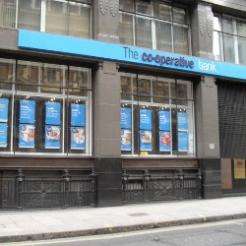A coalition of charities who bank with the Co-operative Bank have written an open letter saying that the Co-op needs to ensure that it maintains its ethical policy as it transitions to new ownership.
The Co-operative Group was forced to abandon its 170-year-old mutual ownership structure last month, after handing a majority share of its banking arm to US hedge funds, including Aurelius Capital Management and Silver Point Capital, and other creditors.
The move was part of a deal with bondholders to plug a £1.5bn capital shortfall and avoid a taxpayer bailout.
Co-operative Bank is the most-used primary bank for charities with an income between £1m and £5m in Charity Finance’s 2013 Banking Survey, and is the third most popular for those with an income between £5m and £20m.
This week, a coalition of charities and other campaigning groups have signed a letter written by the Save Our Bank campaign, asking the Co-op to ensure the bank’s ethical policy is clearly set out in the organisation’s new articles of association.
Commenting on the letter, John Sauven, executive director at Greenpeace UK, said: “A major reason Greenpeace banked with the The Co-operative Bank is that it was one of the few to have grasped the need for our society to wean itself off fossil fuels. It’s important to Greenpeace and our supporters that such far-sighted commitments continue.”
Jenny Ricks, head of campaigns at Action Aid, which has also signed the letter, added: “ActionAid cares passionately that its partner and suppliers meet our ethical standards. The Co-operative Bank has previously aligned its policies to our work halting tax dodging and securing better labour standards globally – we need this to continue in the future.”
Other signatories to the letter include Oxfam and Friends of the Earth.
In a video message released after the bank’s takeover, the Co-operative Group chief executive, Euan Sutherland, who joined this May, suggested the organisation's ethos will not change: “It will remain the Co-operative Bank. We are embedding the principles in the constitution of the bank to guarantee this.”
However, Andre Spicer, professor of organisational behaviour at Cass Business School, has warned that history shows that mutual banks tend not to maintain their ethical ethos following a corporate takeover, citing Northern Rock and Bradford and Bingley as examples.
Today, the Co-op has announced the closure of 50 of its 324 branches. A significant number of jobs are under risk, according to reports.








